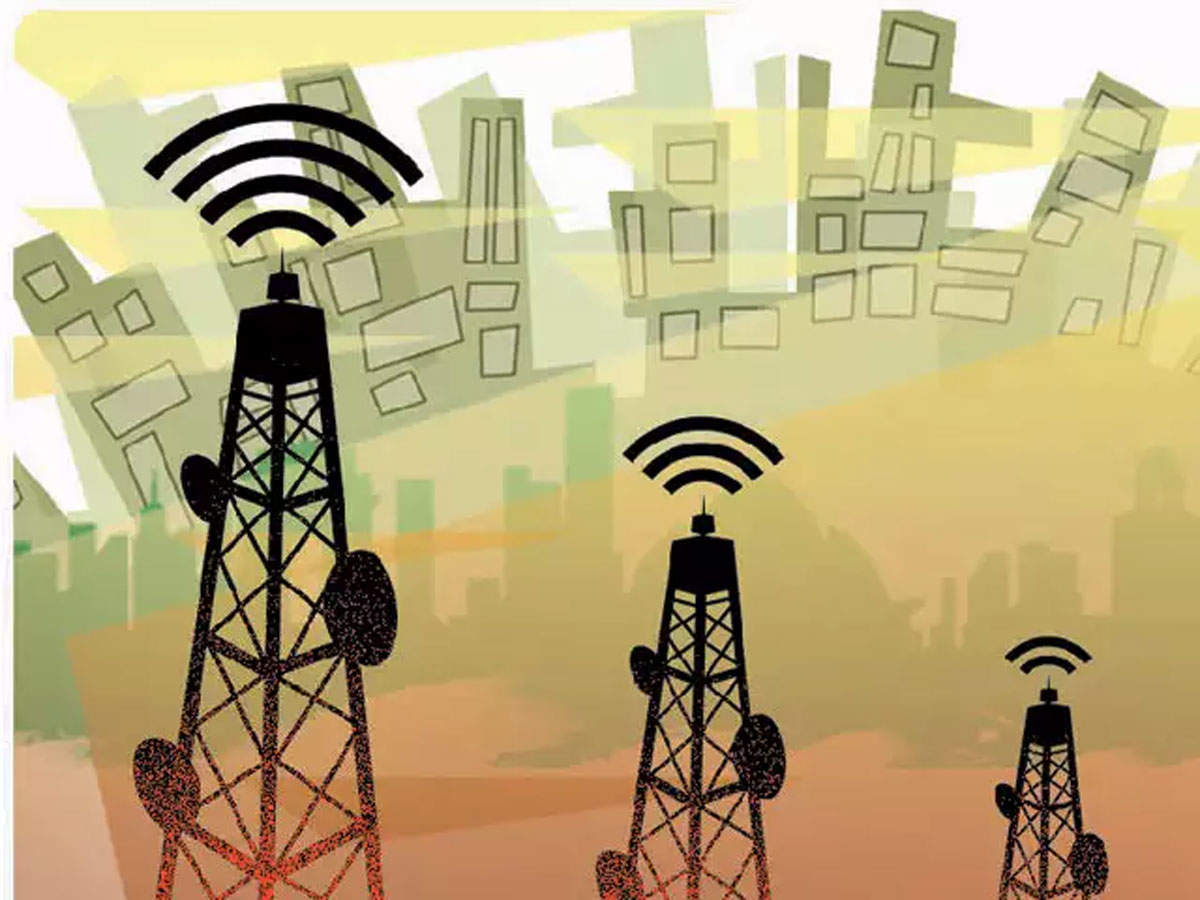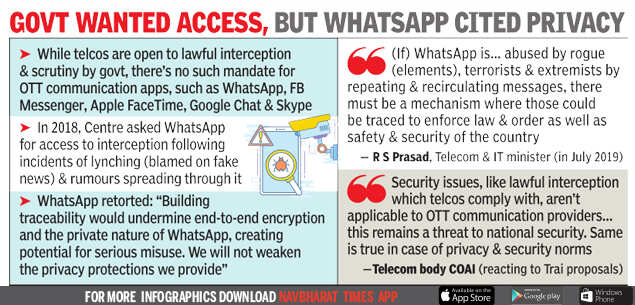
In key recommendations regarding operations of global communication apps in India, telecom regulator Trai has said services such as WhatsApp, Facebook Messenger, Apple FaceTime, Google Chat, Skype, Telegram and even newer players such as Microsoft Teams, Cisco Webex and Zoom should not be bound by a regulatory regime as of now and there should not be specific rules that would mandate them to intercept user calls and messaging.
Making interception mandatory (such as prescribed for telecom companies) may weaken the protective architecture of the communication apps or expose them to “unlawful actors”, Trai said in views that were immediately criticised by mobile operators’ grouping COAI. Accusing the regulator of going against level-playing field, COAI alleged the OTT players “remain a threat to national security” in the absence of such scrutiny.

Trai’s much-awaited recommendations run in complete variance to the strong stand taken by telecom and IT minister Ravi Shankar Prasad who has time and again argued for greater control and scrutiny.
Not opportune moment, says Trai
Telecom and IT minister Ravi Shankar Prasad had even asked WhatsApp to disclose the original source of unlawful messages and help intercept the creators of inflammatory communication after the spate of lynching incidents across the country in 2018.
Social media platforms like Facebook have been among the biggest disseminators of news and information for quite some time and they are now even planning to launch news services. There is absolutely no reason, therefore, why they should not be held to account for the content they carry just as any other medium would be. If a newspaper or TV channel can face charges for, say, inciting violence or hostility among communities because of something they print or air, how does it make sense that the same content on a different medium will invite no action other than asking them to remove it? It is time our laws adjusted to the reality that social media is just another form of media and must be regulated and held to the same standards as any other.Times View
The American instant messenger, a group company of Facebook, has, however, steadfastly refused to do so, saying all communication on its platform is encrypted. Trai did not name any firm in its recommendations on the ‘regulatory framework for over-the-top (OTT) communication services’ that were submitted to telecom secretary Anshu Prakash. The government will take a final view on the recommendations. OTT communication services are basically those internet applications that ride on the network of mobile operators and are competitors to the telcos when it comes to providing voice and messaging communication.
“Trai recommends that it is not an opportune moment to recommend a comprehensive regulatory framework for various aspects of services referred to as OTT services, beyond the extant laws and regulations prescribed presently,” Trai said. “The matter may be looked into afresh when more clarity emerges in international jurisdictions, particularly the study undertaken by International Telecommunication Union (ITU).” Trai said while a few jurisdictions have started exploring possibilities to regulate “some aspects of a few OTT services” through legal and technical measures, these efforts are still in nascent stage and the overwhelming majority of jurisdictions and the ITU are still studying various aspects of OTTs.
On the issue of security and privacy, Trai said that “no regulatory interventions are required… at the moment.” It said the architecture of OTT communication services has been evolving to protect the end-users and encryption technology has been deployed in a manner that prevents intermediaries from getting the communication in a clear text or in an intelligible form. “Imposition of any requirements to cater to get the details of communication in an intelligible form or clear text would either lead to change in the entire architecture of such OTT services which might not provide same level of protection as offered today or would require to introduce provisions which may make the agents involved in the communication vulnerable to unlawful actors,” Trai said.
COAI was unhappy. “While telecom companies have to abide by a strict regulatory and licensing framework… no regulatory/licensing framework is applicable on those OTT players. We are of the view that these OTT services are substitutable to the services provided by the telecom firms and hence a case of non-level playing field exists,” COAI DG SP Kochhar said.
Leave a Reply